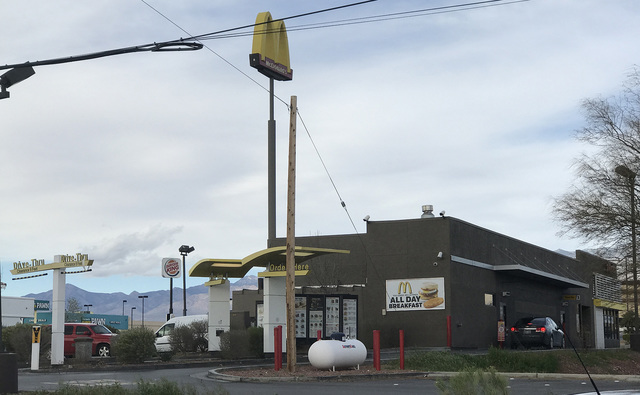
CARSON CITY — Advocates of raising Nevada’s minimum wage argued on Monday paying low-wage earners more would help lift them out of poverty and benefit the overall economy by giving them more buying power.
But opponents countered it would mean increased burdens for small businesses and lead to higher prices, job losses and fewer opportunities for young workers to gain work experience.
Senate Bill 106, heard by the Senate Committee on Commerce and Labor, would raise Nevada’s minimum wage by 75 cents per hour each year until it reaches a minimum of $12 if employers do not offer health insurance and $11 if insurance is provided.
Nevada’s existing minimum wage is $8.25 with insurance and $7.25 without.
“More people than ever are working in jobs that pay too little and offer too few benefits,” said state Sen. Yvanna Cancela, D-Las Vegas.
She said boosting wages would “put hundreds of millions” of dollars into the pockets of low-wage earners, who will put it back into the economy.
Rachel West, with the Center for American Progress, told lawmakers that $8.25 is “a poverty wage.”
“Every year that lawmakers fail to act, purchasing power continues to shrink as prices rise,” West said.
Senate Majority Leader Aaron Ford, D-Las Vegas, citing Republican Gov. Brian Sandoval’s vision for a new economy, said, “This ‘new Nevada’ needs to include new wages.”
“Nevadans deserve an economy where a hard day’s work earns a decent day’s pay,” Ford said.
Republican lawmakers on the committee and business groups, however, questioned analyses that said job losses or price hikes would be minimal. They also argued small businesses would bear the brunt of the cost.
The bill only pertains to private employers, not state or local governments, a provision noted by state Sen. James Settelmeyer, R-Minden.
“It’s critical to understand that raising minimum wages raises all wages,” said Randi Thompson, state director of the National Federation of Independent Business.
She said locally owned, small businesses will be hurt the most.
“They likely can’t raise their prices, due to competitive factors,” Thompson said. “So what do they do to remain profitable? Reduce working hours, lay off workers, replace cashiers with kiosks. And, yes, close.”
Gino Ferraro, owner of an Italian restaurant in Las Vegas, said he employs 70 people and has a $2 million annual payroll. He said many of his workers earn upward of $60,000 a year, and if Nevada wants to raise the minimum wage, employers should be able to calculate how much workers receive in tips in the calculation.
“We’re supposed to be pro-business in Nevada,” Ferraro said. “I beg of you not to raise the minimum wage.”
No action was taken by the committee.
The Senate proposal is one of two minimum wage bills pending in the Democrat-controlled Legislature. Assembly Bill 175, would impose a gradual increase of $1.25 per hour each year, reaching a minimum of $15 or $14, depending on whether insurance is provided.
According to the National Conference of State Legislatures, 33 jurisdictions are considering increasing the minimum wage in 2017.
Nevada’s existing wage, if insurance is provided, is on par with Idaho and Utah, but lags behind California, Arizona and Oregon.
Contact Sandra Chereb at schereb@reviewjournal.com. Follow @SandraChereb on Twitter.